Reactions pour in after Iran targeted US bases with ballistic missiles
Reactions are pouring in after Iran’s Armed Forces launched missile strikes on American bases in Iraq in retaliation for the US assassination of Lieutenant General Qassem Soleimani, with several countries calling for de-escalation and restraint.
In the early hours of Wednesday, Iran launched tens of missiles at two bases housing US troops in Iraq’s western Anbar Province and Kurdistan regional capital, Erbil, in revenge for the American targeted killing of General Soleimani and his companions.
Tehran says its missiles precisely hit their targets, with initial reports of casualties.
The Iraqi military said in a statement on Wednesday that a total of 22 Iranian missiles were fired, out of which 17 hit Ain al-Assad and 5 struck the Erbil base, adding that added that there had been no casualties among Iraqi forces.
The Islamic Republic warned the US of a more crushing blow if they opt for any new military aggression, advising the American military to immediately leave the region.
The Iranian missile attacks have drawn reactions from several states as well as the European Union.
China
Beijing urged the United States and Iran to exercise restraint and resolve their dispute via dialog.
Chinese Foreign Ministry spokesman Geng Shuang reiterated a call for a peaceful resolution of the conflict during the daily briefing on Wednesday.
Earlier, China criticized the United States for aggravating tensions in the Middle East through its use of force in the standoff with Tehran.
An editorial on Tuesday in the government-run China Daily blamed the US for creating a “cauldron of tensions” in the region.
UAE
United Arab Emirates Minister of State for Foreign Affairs Anwar Gargash took to Twitter to underline the need for de-escalation in the region.
Essential that the region pulls back from the current & troubling tensions. De escalation is both wise & necessary. A political path towards stability must follow.
— د. أنور قرقاش (@AnwarGargash) January 8, 2020
Separately, Emirati Energy Minister Suhail al-Mazroui said he did not expect a war to break out after the missile attacks.
“We will not see a war,” he said at a conference in Abu Dhabi. "This is definitely an escalation between the United States, which is an ally, and Iran, which is a neighbor, and the last thing we want is more tension in the Middle East.”
Japan
Japanese Chief Cabinet spokesman Yoshihide Suga said the government would “coordinate with the related governments to collect intelligence while we ensure the safety of Japanese citizens in the region.”
“Japan will also urge all related nations to do their utmost diplomatic effort to improve the relations," he added.
New Zealand
New Zealand's Acting Prime Minister Winston Peters, expressed concern over the escalation of tensions between the US and Iran.
“Now is the time for restraint and de-escalation, and for diplomacy to take over....the government has been informed that all New Zealand personnel are as safe as they can be in these developing circumstances,” he said.
Philippines
The Philippines ordered a mandatory evacuation of its citizens from Iraq.
“The Alert Level in the entire Iraq has been raised to Alert Level 4 calling for mandatory evacuation,” said Eduardo Mendez, a spokesman for the Philippines' Department of Foreign Affairs.
Bernard Olalia, head of the Philippine Overseas Employment Agency, later said the Filipinos in Iran and Lebanon had also been told to leave.
Filipino Defense Secretary Delfin Lorenzana said two battalions of troops and marines would be sent to Iraq to help with the evacuation.
“The two battalions will not be there to engage in combat, but to facilitate or help assist in the repatriation, especially in Iraq. They will not be there to fight… but they must be able to defend themselves,” he said.
South Korea
South Korean Foreign Ministry said it held a meeting of its officials to discuss measures to cope with the Middle East tensions and ensure the safety of it nationals living or staying there.
A ministry official said it was not considering South Koreans’ withdrawal from Iraq.
“We are not at the stage where we would consider a withdrawal (of South Koreans) as for now,” the official said. “We’re closely monitoring the situation and will devise measures stage by stage in consideration of various possibilities.”
EU
EU foreign affairs chief Josep Borrell has called on all parties to de-escalate the current crisis.
Iran’s raids on airbases in Iraq “used by US and coalition forces, among them European, is yet another example of escalation and increased confrontation. It is in no one’s interest to turn up the spiral of violence even further,” he said.
Australia
Australia Prime Minister Scott Morrison told reporters that all of the country’s diplomatic and military personnel stationed in Iraq were safe.
He also noted that the situation in Iraq was very fluid and that he was receiving constant updates.
Morrison further said that he had ordered “whatever actions are necessary” to be taken to protect Australian personnel in the Middle East.
Canada
Canada’s Chief of Defense Staff General Jonathan Vance stressed that no Canadian troops had been hurt by the barrage of Iranian missiles.
"CAF families: I can assure you that all deployed CAF personnel are safe & accounted for following missile attacks in Iraq. We remain vigilant."
That message was echoed by Canadian Armed Forces Operations, which tweeted, “Canadian Armed Forces personnel deployed in Iraq are confirmed safe after two military bases were targeted by missile attacks this evening.”
'Next to impossible' to rescue patients from Gaza's Kamal Adwan Hospital: Director
VIDEO | Vietnam current prosperity
Report blames gasoil exports for shortage at Iranian power plants
VIDEO | Hind Rajab Foundation names Israeli war criminals vacationing after Gaza genocide
VIDEO | Australians rally for Gaza ahead of Christmas festivities
VIDEO | Attacks on Sana'a
Iran reports further drop in annual inflation rate in December
Israel indicts two settlers over suspected spying for Hezbollah


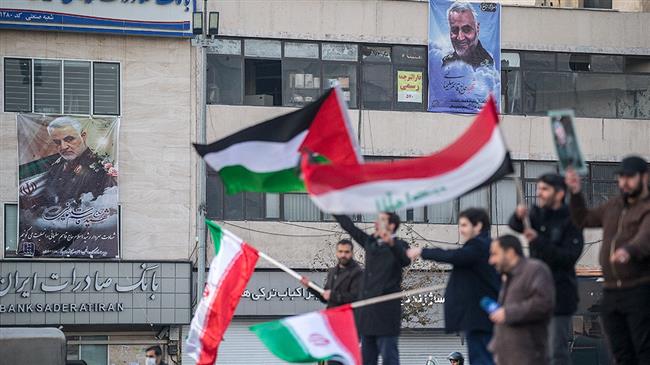








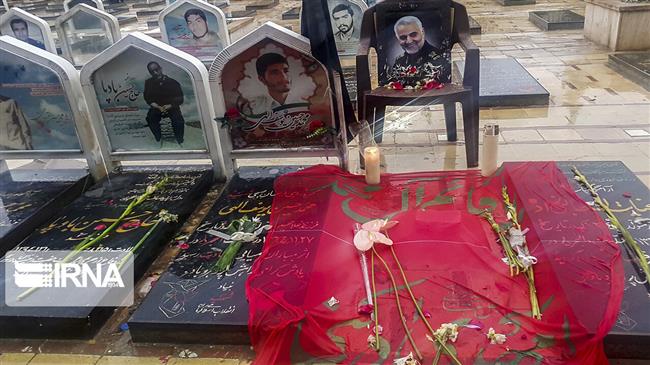
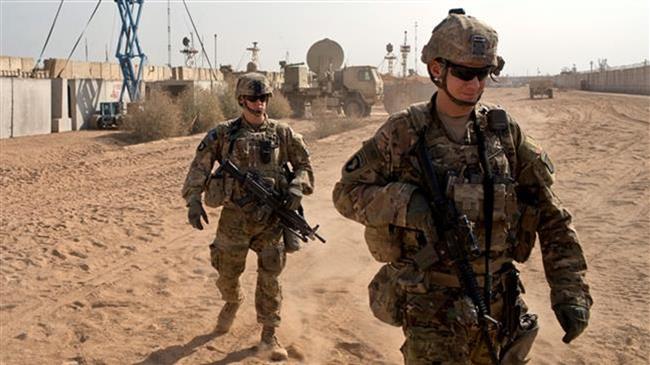
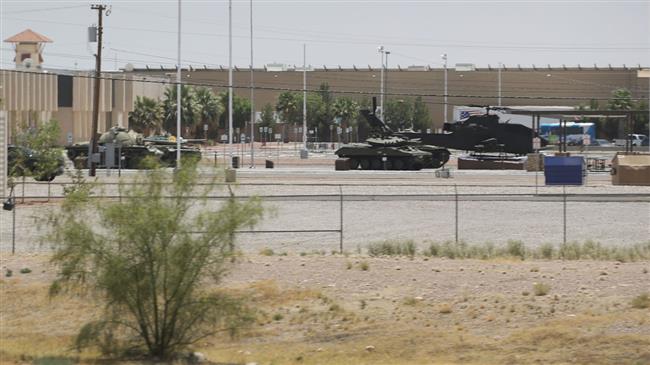
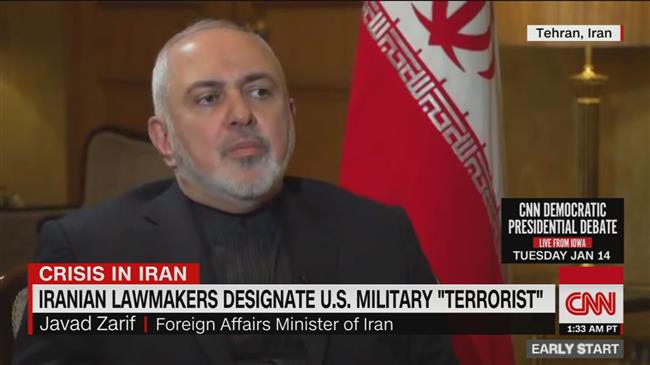
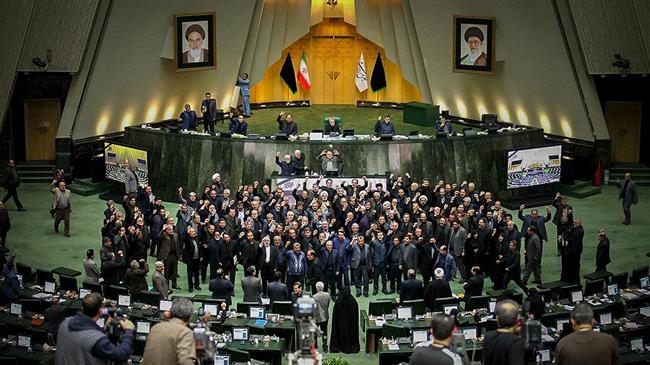

 This makes it easy to access the Press TV website
This makes it easy to access the Press TV website